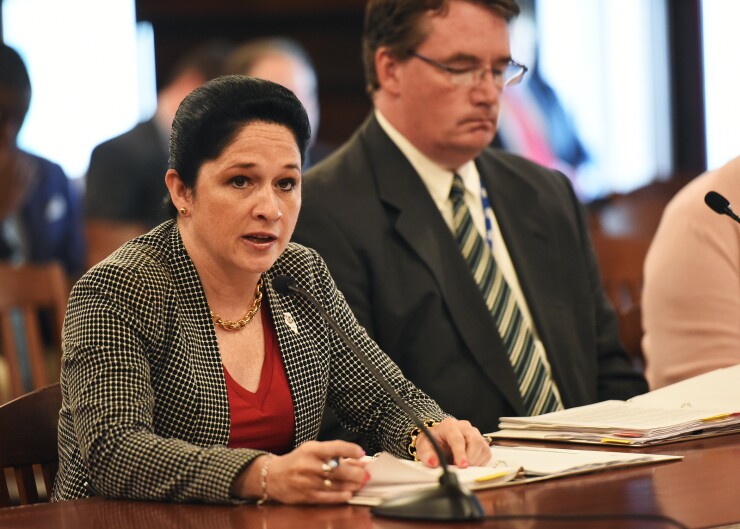The East St. Louis, Illinois, police pension fund has followed their firefighter colleagues in moving to recover contribution shortfalls through the state’s intercept process.
The police fund board voted late last week to certify the amount and authorize the

The city doesn't plan to contest either public safety claim.
“There is an amount due to the pension fund because the city failed to contribute the statutory minimum, annual actuarial requirement…for fiscal years 2017 and 2018,” the police fund's claim says. “The city of East St. Louis has chronically underfunded” the fund, which is just 35% funded according to the Illinois Department of Insurance.
The cash-strapped city that spent years under state oversight is the latest Illinois local government that may face loss of its state revenue after falling short on its public safety pension payments.
The East St. Louis Firefighters Pension Fund
The state Department of Insurance’s actuarial valuation reported the firefighters plan at just 11% funded at the end of fiscal 2018.
The city issued a press release Tuesday saying it had received notice from the comptroller’s office notifying of the intercept claims and indicated it doesn’t plan to contest them.
“The city anticipates that its state revenues will be intercepted until both debts are satisfied,” read the statement.
The city anticipates the loss in revenue will require spending cuts as the city works on a financial recovery plan. “The intercept of city revenues that will be redirected to the Police and Firefighters’ Pensions are approximately $3.9 million. This will create extreme changes in the city’s budget and likely result in reduction of some services,” City Manager Brooke Smith said in the statement.
The city’s mayor and city manager appeared at the police fund hearing last week and acknowledged receipt of the notice and did not contest the claim amount, according to the intercept claim filed with Mendoza’s office.
The comptroller allows for a 60-day protest period and then makes a determination if the claim is valid before sending any funds.
Pension funds that represent public safety workers in Harvey and North Chicago as well as all four of Chicago’s pension funds have sought to garnish the local municipality’s share of state tax funds — in Chicago’s case its state grants — since the comptroller put in a place an intercept process. The diversion began early last year to comply with state pension law changes, according to comptroller's office spokesman Abdon Pallasch.
The Illinois Municipal Retirement Fund, which covers non-public safety workers outside Chicago and Cook County, also has used the law on a handful of municipalities behind on their contributions. North Chicago’s claims were paid. Harvey settled a legal dispute with its firefighter and police funds in a deal that gave the two funds a smaller share of their requests.
Chicago is challenging several of the claims and is locked in a legal dispute over whether it is required to make up the difference between taxes levied to cover the contribution and what’s collected.
East St. Louis, across the Mississippi River from St. Louis, Missouri, has struggled for decades with a dwindling tax base, the loss of population and poor tax collections. The city sought out the distressed designation for home rule units of government in 1990 and it came under fiscal oversight of a special board.
The city was freed from two decades of state oversight in 2013 after paying down its 1994 debt issued under the Financially Distressed City Assistance Program. It met fiscal targets needed to exit oversight, including balanced budgets, but has struggled since and began falling into the arrears on pension contributions. In 2015, the public safety pension funds filed a lawsuit against the city but the lawsuit stalled.
Gov. J.B. Pritzker’s pension consolidation task force is weighing a minor fix that could cut some investment and management costs for the roughly 650 suburban and downstate public safety pension costs through some form of consolidation.





